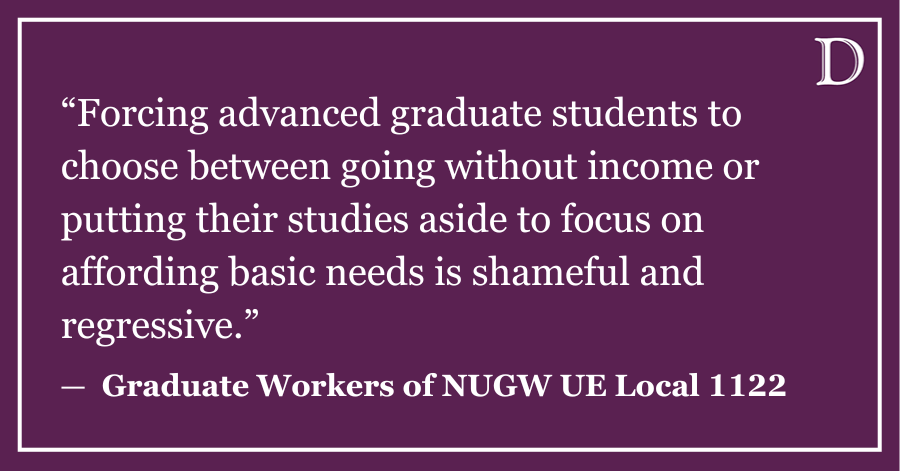For the second time this fall, we’ve opened our email to learn about the sudden death of a member of our community. In September, McCormick sophomore Harsha Maddula was found drowned after he attended an off-campus party, and we may never know the narrative that led to his death. Last week, Weinberg junior and Brady Scholar Alyssa Weaver committed suicide while she was studying abroad in London.
Those of us who know them will mourn them, struggle over the terrible meaninglessness of their deaths and feel the complicity of looking for reasons before we return to the routine of our daily lives. We feel helpless before suicide, which tends to make it seem like a sudden, rare, random strike.
If only that were true. According to the Centers for Disease Control, suicide is the third most common cause of death among people between the ages of 15 and 24, and the second most common among young adults between 25 and 34.
Although most people with mental illness do not attempt suicide, nearly all who do have an underlying psychological issue like depression, a chronic or acute despair that they cannot control. In a recent study from the National Institute of Mental Health, 30 percent of college students reported that during the past year they had at some point been so depressed they felt unable to function. The study noted that depression seems to be on the rise on college campuses.
This means that even if you are not suffering from depression, someone you know is. The trouble is that smart, vibrant Northwestern students tend to be awfully good at hiding it. Your can-do mentality tends to tell you, “I can overcome this if I just try harder!” or even, “I feel guilty for being so depressed when I have so much going for me!” Or you may just be baffled at finding yourself failing at something for the first time, when you are here largely because of your capacity for steady success at everything you have tried.
But learning to accept your limits is learning what it means to be human. Realize that although difficult events can trigger depression and suicide, depression is really a chemical imbalance in the brain. You can no more adjust this balance than a diabetic can will their body to make more insulin or a person with low thyroid production can think themselves out of fatigue. At the physical level, the brain, like any organ, can become unable to function properly — in this case, to imagine that there are other futures beyond the intensity, or the injustice, or the pain of this moment.
What can you do for yourself and your friends? First, get rid of the stigma around depression, suicidal thoughts and treatment for mental illness. We need to learn to talk about mental illness like we talk about cancer, a serious emotional and physical crisis that can be treated, whose sufferers need support and decency and understanding as they face a life-threatening illness. Depression and anxiety are more common than asthma. You wouldn’t stigmatize a friend for using her inhaler; she shouldn’t feel shame if she uses Prozac to function, too.
Second, get informed. Know the signs. Sadness is one, but irritability, difficulty concentrating, weight loss or gain, abuse of alcohol or drugs, chronic difficulty sleeping, ongoing aches and pains and even risk-taking behavior often signal depression too. If you can, get involved in NU Active Minds or another group that educates and advocates.
Third, take care of yourselves. Take care of each other. Get enough sleep, eat as if you care about yourself and walk over to the gym, even if you don’t feel like it.
Finally, stay in touch. See a counselor. Tell your professor directly if the assignment needs to be late, or you are worried that you cannot pass that final exam, or the pressure to succeed makes it hard to even start. We are here to teach you — the goal is to help you learn, not to punish you, or to overwhelm you. Ask us for help, for that is our job as teachers, to teach you how to try again. And not just for yourself — speak up if you are concerned about a friend.
A life — yours or someone else’s — is worth whatever it takes to protect it, including changing a culture that can lead to despair and working to remove the stigma that surrounds mental illness of any type. Our community needs every single one of you.
Cristina Traina, a Public Voices Fellow with the Op Ed project, is a professor of religious studies and former professor in the Brady Program for Ethics and Civic Life. She and some members of her extended family live with depression.
Laurie Zoloth is director of the Brady Program in ethics and civic life and a professor of religious studies.










